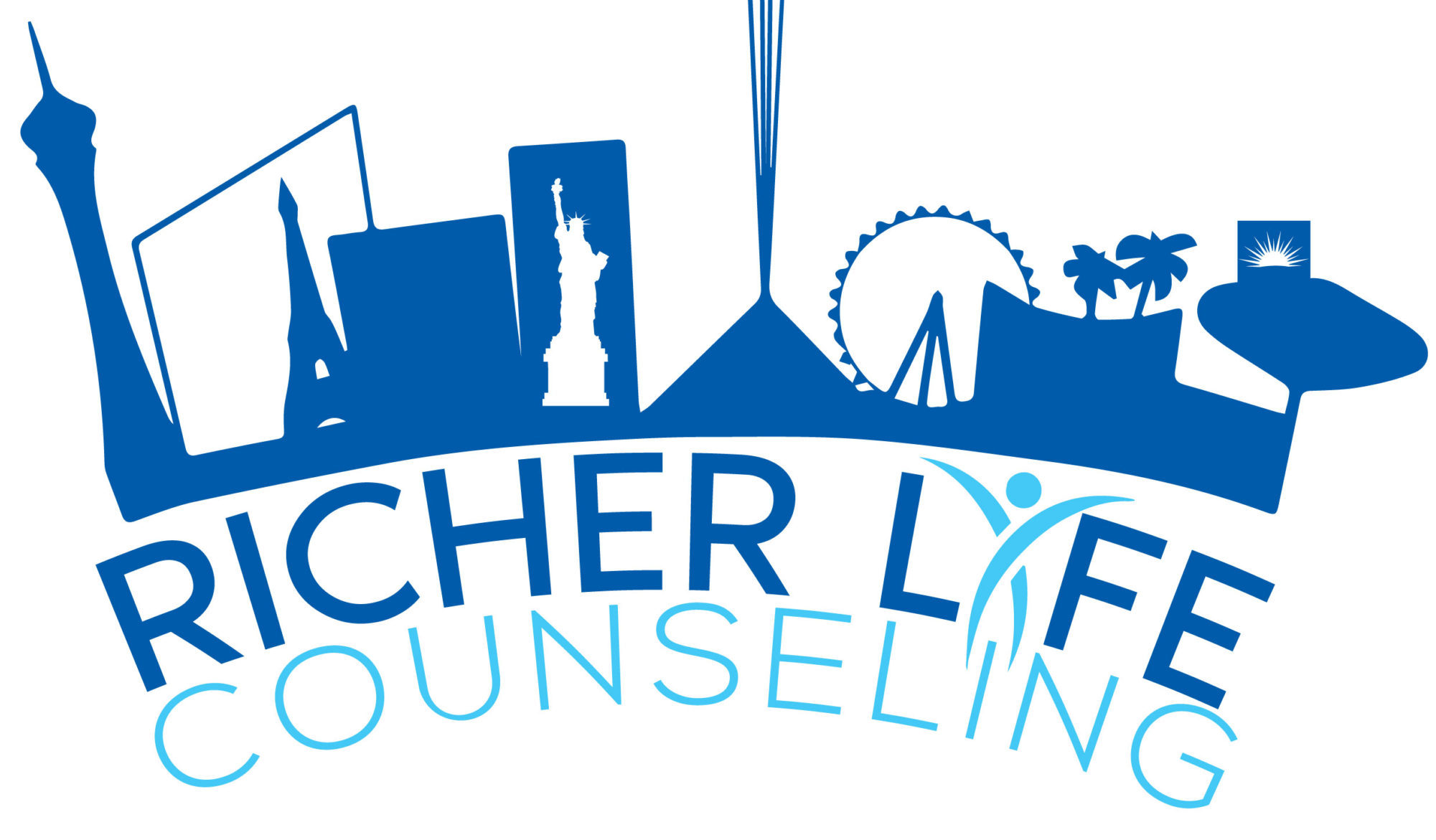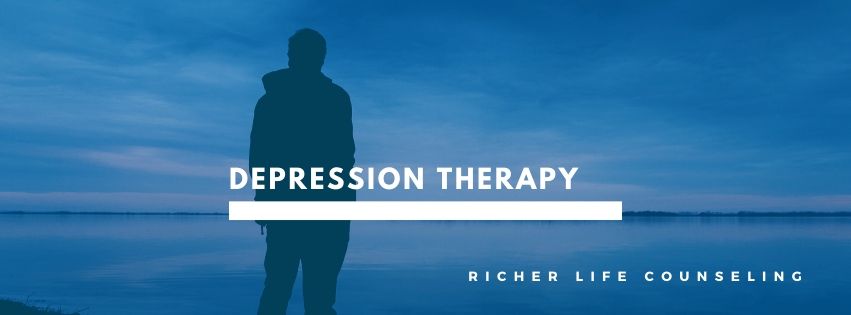Depression is one of the most common concerns that bring clients into therapy. However, there may be confusion on what qualifies as a depressive diagnosis, how it may differ from how we personally experience it, and at what threshold we treat it. In our manuals, depression is described at minimum as an episode, lasting at a minimum of two weeks, wherein we experience a combination of low mood, loss of pleasure, sleep disturbances, changes in appetite, changes in energy, inappropriate guilt, and thoughts of death. While these symptoms seem straight forward, I fear that without further exploration, it may invalidate clients from seeking aid due to not meeting symptom minimums. If you are looking for depression therapy in las vegas, here is how we work with depression.

What your Depression Feels Like
Depression feels like losses in who we are, what we’ve had, or what can come next. It’s a disconnection felt internally that makes interacting with our external world difficult. Experiencing depressive moods doesn’t always fit a scientific definition. It doesn’t mean that the soul doesn’t feel it any less. If you are experiencing distress then attempting to reach out for aid is valid in seeking treatment. Here is how I work with people just like you. Below I will try to list common ways depression or depressed moods affect you. Remember that just because your version is not listed, that does not mean that we are not going to find a way to help.
Sadness and Depression
While depression, or a depressed mood, has become synonymous with sadness, the main difference is the grip either has on us. When sadness becomes chronic or feels like a permanent state of being. The sad thoughts can begin to infect the way you think, engage, and respond both to ourselves and with others. This occurs when you spend too much time in sadness without finding any direct ways of lifting from it. Everyone’s situation requires a different need to lift sadness. Feeling isolated, sad and hopeless can foster intimidation. This further prevents you from believing that there is a way to alleviate sadness resulting in solidifying the mood as a fact of life, a depressed state of being.
Fatigue, Hopelessness, and Loss of Joy
Building on the feeling of being stuck in a depressed state of being, we can get a feel for how repeated attempts at repair can wither our motivations, energy, and hope. Much like quicksand, we may panic and flail about when gripped by sadness and depression, furthering our descent into depression.

If I have learned anything from the endless action films to date, getting out of quicksand takes deliberate attention. Something you may not be great at when torn down by sadness or depression. When no longer motivated or energized, you succumb to these moods and feelings and can no longer see or believe in a way out. In these pits of hopelessness, meaning for joy and our interests may begin to distort. Things that brought moments of joy are unable to break through the beliefs and narratives of depression, resulting in losses of interest and passion.
Suicidal Ideation
Being gripped by depression and hopelessness is an uncomfortable and terrifying feeling that rightfully, we want to alleviate. Because of the descent that brought us into this space, we may not believe that there is any way out. The belief that this is all we can have and expect from the future culminates in a dark, shadowy space in our psyche. When our consciousness receives overwhelming feedback that states, “we cannot or will not be who we want, or have what we want,” our will to continue is greatly diminished. Just because you present with ideation or fantasy of death, does not mean that you want to or have to harm yourself. These thoughts or intent signal a greater need in repairing, reorienting, and reconnecting to a sense of hope.
Guilt and Worthiness
Believing you are disconnected, ignored, or kept from participating has negative consequences on your self worth and may result in feeling less than worthy. These feelings of worthlessness foster apologetic and guilty feelings wherein you may subvert your needs to appease others, hoping for reciprocation. However, without overly expressing ourselves, you may never convey your actual needs. As much as you wish it, others may not be able to read your mood, and definitely not your mind.
Ways We Sense Sadness and Depression
When you are in a lower mood and feeling disconnected, you lose energy and motivation, which makes simple tasks feel overwhelming or even impossible. This can result in changes to your routine, hygiene, and appetite. Feeling unable to engage with your basic needs can further play into your feelings of worthiness, fostering high levels of embarrassment and shame. Losses in worthiness affect your ability to move in self-interest, typically furthering difficulty with hygiene, pleasure, and appetite. Becoming overwhelmed with either feeling, sensation, or meaning has a way of infecting our sleep patterns, having us either exhausted from exerting or wanting to escape into sleep; however, our unconscious doesn’t allow us restful sleep when there are items to attend to.
Depression Treatment Through Therapy
With therapy, our goal is to aid clients in navigating out of the pit and further from hopelessness and depression. In the process of navigating clients through depression, they are tasked with understanding the thoughts, behaviors, and ways of engaging that fostered their descent. In order to strengthen their awareness, clients can expect to be confronted with how they feel and why they act in order to increase their ability to actively and deliberately validate their sadness and cultivate their needs. Alongside grasping control over asserting their needs, clients will develop confidence to address the external world in which they participate, gauging safety with their vulnerability.

Depression Can End
Coming out of the other end of therapy, clients can expect to have clarity over their needs and the confidence to validate their attempts to achieve them. The clarity clients gain helps to reinforce understanding where sadness creeps in, and if left unchecked, how it can fester into a depressed mood. By having internal validity, clients can gain access to motivations and energies that create a safety net preventing the descent. Clients create this safety net by understanding themselves and participating with others authentically allowing for space to understand their emotions and in turn, respect them and their needs.
The reason you might not seek out Depression Therapy
“I don’t have it as bad as . . .”, “I’m just bitching”
As we have learned earlier, an experience we may have alongside depression is challenging our worthiness. While objectively, there are infinitely many situations different from yours. What is going on elsewhere has no bearing on the importance of your mental health. Intuitively, you can sense that things are not okay, and it is okay to get that part of you checked out. We allow this practice with physical check-ups. Why would you not create the same space for your mental health? Whether we think it is just complaining, or a more serious issue, you are always allowed a consultation.
“What’s the point?” I can’t change things anyway.”
Another symptom that manifests through depression is this belief that we are fixed within this position and that there is no way through it or out of it. Clients who engage in therapy are offered an opportunity to tear down these rigid beliefs and connect with creativity and an understanding that affords opportunity to taking control out of the depressive mindset. The narrative process of therapy helps us rewrite the stories that reinforce the “gunk” that depression fills us with.
“I’m scared to see my wounds.”
Addressing the areas that foster chronic sadness and the descent into depression can be terrifying alone. Much like how we sought the comfort of a sibling to walk in a dark hallway as a child, we seek guidance and a lifeline when entering the shadowy space that depression lives.
“What if it is my fault?”
When overwhelmed with emotional distress or driven by a complex that prevents engaging distress, we can be misguided in our approach to mending a situation. This misstep, coupled with difficulty navigating worthiness, can foster fears of addressing the accountable aspects of our mental health. Therapy helps nurture clients in understanding how these experiences are developmentally appropriate and guide clients through increasing their emotional strength in both tending to their feelings and knowing how to accurately express them.
Climb Out Of Your Depression Today

If you are ready to seek out depression therapy, you can start the climb out of depression. Contact us below today to get started. The therapist who works with depression at our group practice is listed below.
Contact us today by calling or texting 702-518-1546, email, or booking a session by hitting the appointment request button. We can normally get you into a session within 24 or 48 hours.
We offer both online therapy (learn more about online therapy here) and in-person therapy at our Las Vegas office. Our office is located in West Las Vegas right off the 95 & Rainbow. Our address is 222 S. Rainbow Boulevard | Suites 113-114 |Las Vegas NV 89145

